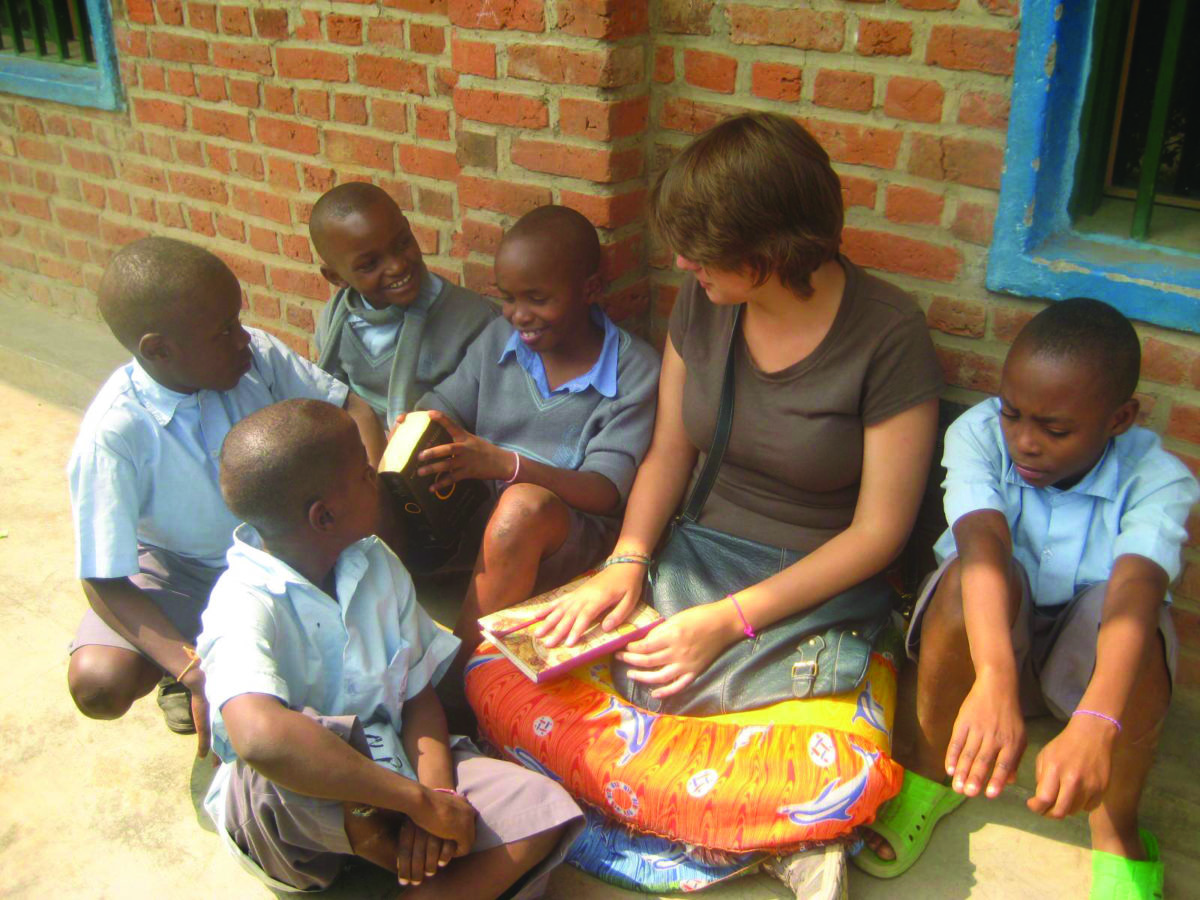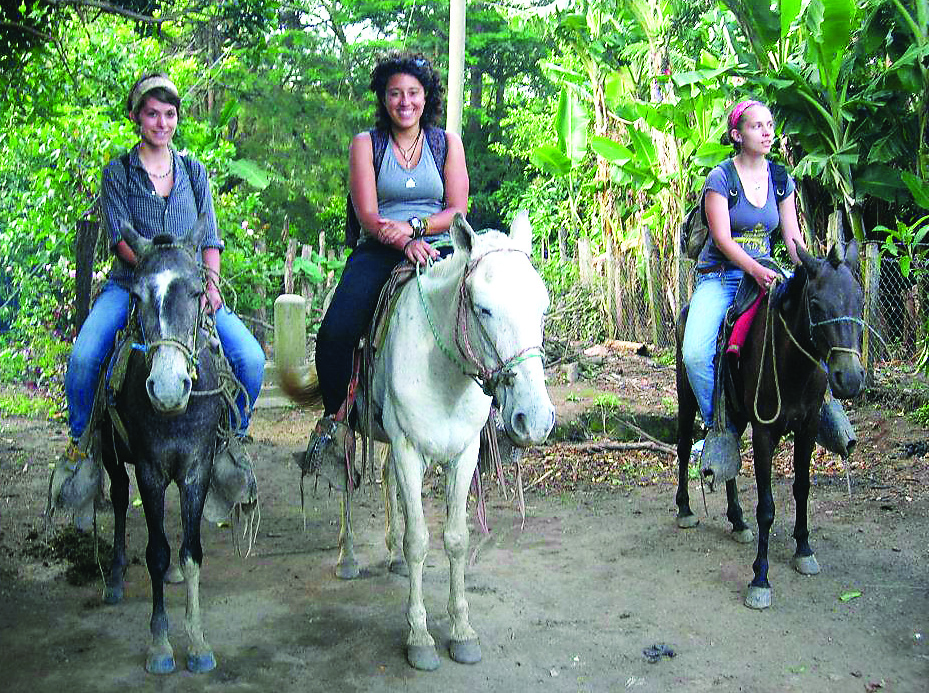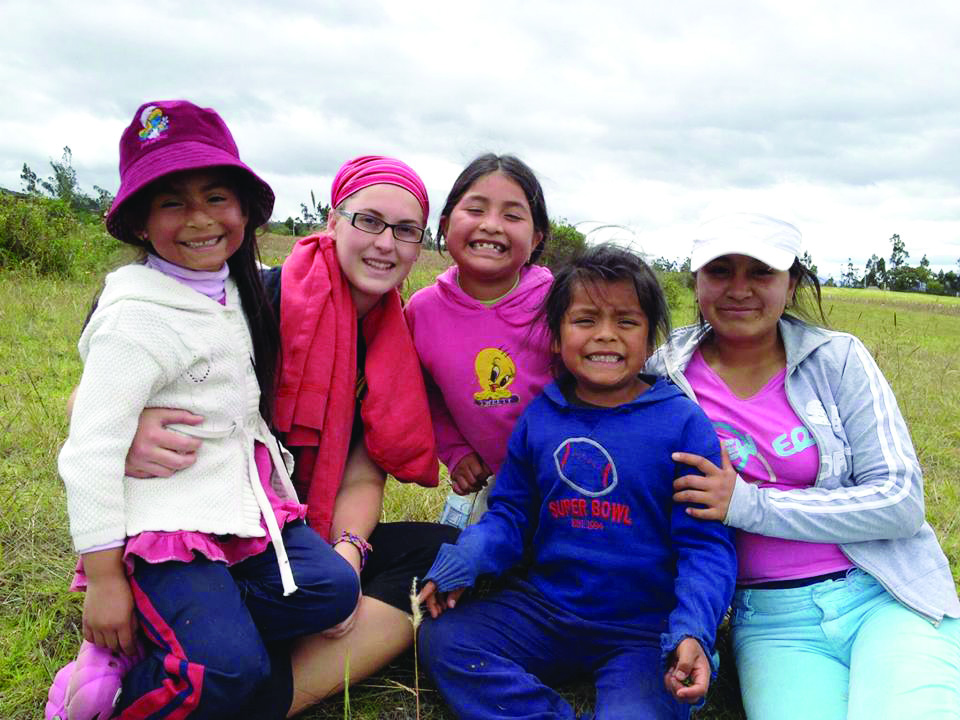For five years, STU had a relationship with a program based out of Ontario called Intercordia.
The program allows students to live with a host family and work in countries like Rwanda, Ukraine, Dominican Republic and others during the summer.
Students would be in a class during the winter semester to learn about their placements. Once they returned for the fall semester, there would be another class dedicated to reflection and analysis of their experiences.
This year, St. Thomas terminated that relationship.
STU administration was unable to get back to The Aquinian before publication.
Thom Parkhill, professor of the two classes, said in a letter he got from STU President Dawn Russell, the reason had to do with financial difficulty.
“There’s a sadness and I’m not sure how this is going to play out,” said Parkhill. “It sounds like if we’re in better shape, financially, the university will approach the idea of Intercordia or similar programs again.”
Joe Vorstermans, director of Intercordia, said he was given the same reason. Intercordia asks universities to contribute $2,000 per student to help keep the cost affordable. He said St. Thomas is now unable to do that.
“According to [Russell], she said that St. Thomas could no longer make the commitment to provide that kind of funds to one program when there are so many other programs that were asking for support.”
Vorstermans was also told STU could not spend the money on two extra courses for a class that only took in eight to 12 students. He said these are practical reasons.
“From [Russell’s] point of view, she’s saying ‘You can’t guarantee us that you’ll have 15 people taking the course in the winter and the follow-up course in the fall and, therefore, we don’t think we can continue on with the partnership.’” said Vorstermans.
Vorstermans realizes the financial struggles of universities and knows cuts need to be made.
“But, I’m disappointed because I believe in our program,” said Vostermans. “I believe many of the St. Thomas students who did our program had a very profound experience, in some cases a life-changing experience.”
What makes this program different from other over-seas programs is the focus of them, said Vorstermans.
“Our focus is really on students,” said Vorstermans. “Not so much what they’re going to do for people in their placement but our focus is that they try to be more with people. In that sense, they try to understand the community, understand the culture, the history, the political realities and the injustices.”
Parkhill said Intercordia does more than just send students over-seas for a few weeks to build houses then leave.
“Intercordia specifically sends students into situations that are difficult in order that students may witness, may stand beside, may work, be with these people,” said Parkhill. “The working is not as important … That standing with people in solidarity and knowing their lives, that’s important.”
Vorstermans said Intercordia can still come to STU without the financial assistance as long as the courses are offered, it just means students will have to pay more to participate.
“We understand why the partnership couldn’t continue, but, if conditions change and St. Thomas would like to invite us back, there’s no hard-feelings.”

Emily Sheen in Rwanda
Emily Sheen sat stooped on a porch with her neighbor, Jeanie. They shelled beans in silence, a language barrier between the two. After some time had passed and the bean pile had grown, Sheen would leave to catch the bus to work. Her quiet companion would walk with her for half of the 40 minute walk.
This was how almost every day started for Sheen during her three month stay in Rwanda.
“When I started the program I didn’t think about what made it important or unique. I just thought, ‘Oh hey, I’m going away for three months to volunteer with poor people in a developing country and aren’t I special?’” said Sheen. “But, when I got there I couldn’t even communicate with people so I was just physically with them. The program taught me it’s important is to be with people, it’s not about doing things that people will respect. It’s to be with people.”
Sheen’s volunteer program was at a private school where she taught students how to use computers. She taught grades 1-6, although some of her students were 18-years-old.
“My placement was challenging for me, I’m not good with helping people understand things. But, I finally dealt with the fact that I was teaching these kids a damn thing about computers and that’s not why I was there anyway. I was there to see what these people do and do it together.”
Intercordia allowed Sheen to put things on hold, to not worry about work and other obligations and to just be happy living among other people.
“They taught me in so many different ways how important it is just to love and that sounds so stupid, but to love unconditionally only as children can. The older you get the more barriers you put up to protect yourself,” she said. “When you finally move back to Canada it makes you feel bad, but what really matters was how good it felt to love a person during the time that you had.”

Ashley Rerrie in Nicaragua
Before Ashley Rerrie spent a summer in Nicaragua, she saw herself as a confident woman and was truly comfortable with who she was. When she arrived at her host family’s village, those values flipped.
On the first day, Rerrie’s host mother sensed her uneasiness and hauled out a stack of photographs. The pictures were all of past Intercordia participants who had stayed with the family. This proved to Rerrie that other people had been in her position before and had enjoyed their stay, soon she would be one of those smiling faces.
“My host family couldn’t speak English and I couldn’t speak Spanish and it really taught me that there was more to me than just being funny or outgoing or even smart because somehow my family still figured out ways to love me and make me feel like I belonged even though I was generally pretty silent all summer,” said Rerrie. “They still saw something of value in me and taught me a lot about my self worth and what makes me a good person.”
Rerrie became a part of the family and would be up with the sun like the rest of the house. During the days she harvested vegetables in her host father’s fields or worked with the village’s local farming cooperative.
On Friday mornings, Rerrie would head to the town market with her freshly picked and packed vegetables and, as a family, they would sell their week’s labour. With the money they earned, they would pick up their necessities for the week.
“Before I left I was interested in international relations and development, but it was sort of vague and nebulous in my head, but getting to see what families in my community went through and what my family went through to make a living and sort of understanding what food looked like going from seed to table, really opened my eyes to a lot.”

Laurence Pigeon in Ecuador
Laurence Pigeon spent most of her summer in the kitchen of a daycare in Ecuador. She would be busy making bread while her host mother took charge of the rest. The children would run in, eager for breakfast. When the work day was done the two of them would calmly clean up and walked home together.
The house filled up as Pigeon’s six host sisters flooded in after school. The girls spent their evenings together, chatting about their day or relaxing with a game of cards.
The three month exchange went by slowly, yet fast in the familiar way that all summers do. On Pigeon’s last day in Ecuador, her whole host family walked with her to the village’s central park. This is where they would part ways.
“It was the hardest thing I had to do, just getting on the bus and looking out the window watching all my host sisters waving at me. I always replay that moment in my head and think about what’s happening in their lives and I wonder if I’ll ever see them again,” said Pigeon.
Pigeon’s Intercordia experience didn’t stop when she returned to Canada. She found it hard to talk to people about her trip when she got back. She would have closed up if she didn’t have people to relate to. The nine people in Pigeon’s class have a whole semester to think about and question their experiences.
“It’s special because we all prepared together to leave and then we all left to different countries and then we came back and realized that even though our experiences were so different, it was so similar.”
A big part of Pigeon’s mental preparation for her trip was speaking with previous STU students who had been in her position.
“I was excited for next year to be my turn to talk about my experiences to new participants, but now it just feels like there’s no one to pass down these thoughts to.”
